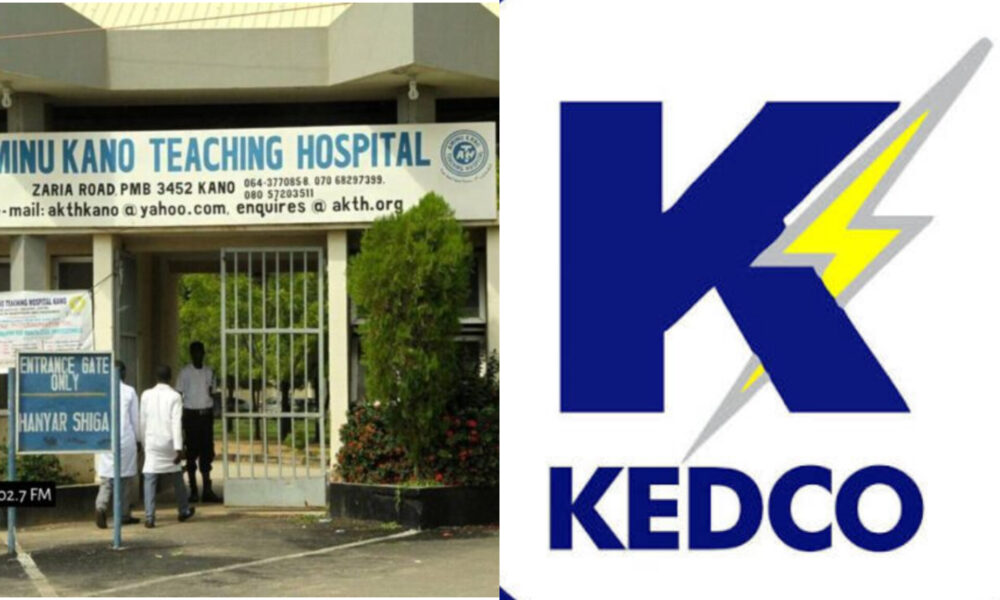HEALTH
AKTH Fears Patient Deaths Over KEDCO Power Disconnection

There are grave fears that lives could be lost at the Aminu Kano Teaching Hospital (AKTH) following a life-threatening power disconnection by the Kano Electricity Distribution Company (KEDCO). The hospital’s management has issued a desperate plea to the power company, urging it to restore electricity to the facility to prevent a further loss of life. In a heart-wrenching statement, the hospital confirmed that some patients in critical care had already died after KEDCO abruptly cut off the entire hospital’s electricity supply over pending bills. The tragic incident shines a harsh light on a deeper, systemic crisis afflicting Nigeria’s healthcare sector, where the clash between inadequate infrastructure and a demanding public utility can have fatal consequences. This is not merely a billing dispute; it is a matter of life and death, forcing critical care units to rely on expensive and often unreliable backup generators and casting a shadow of fear over every patient on life support.
A National Crisis in Public Healthcare
The ordeal at AKTH is a grim reminder of a recurring tragedy in Nigeria’s public health system. Similar incidents have been reported across the country, where power disconnections have directly led to avoidable deaths. For example, at the University College Hospital (UCH) in Ibadan, a prolonged blackout left operating theaters unusable and ICU staff manually pumping resuscitators for patients whose ventilators had failed. In another instance, a patient died mid-surgery in a Minna hospital when the generator failed and there was no backup fuel. These incidents underscore the dangerous reality that for many of Nigeria’s public hospitals, reliable electricity is not a given but a luxury often determined by the ability to pay exorbitant bills. The situation has become so dire that President Bola Ahmed Tinubu recently declared that fixing the power crisis in hospitals is now a national priority, stating that such outages “cannot continue” and that “lives are at stake.” The government’s awareness of the problem highlights the deep-seated nature of the challenge.
The Financial Battle with DisCos
The power disconnection at AKTH is rooted in a prolonged financial battle between Nigeria’s public institutions and electricity distribution companies (DisCos). A major teaching hospital like AKTH can face monthly electricity bills ranging from ₦30 million to over ₦100 million, an amount that often exceeds their annual budgetary allocations for power from the government. The hospital’s management stated that it regularly uses its Internally Generated Revenue (IGR) to pay its bills and to procure diesel for backup generators, which can cost up to ₦1,750 per litre. This places an immense financial strain on a sector already stretched thin, forcing hospitals to divert money away from life-saving medicines and essential equipment upgrades just to keep the lights on. The situation is further compounded by a history of what the Federal Competition and Consumer Protection Commission (FCCPC) has called “arbitrary billing” and group disconnections, where power is cut to entire facilities without consideration for paying customers. This puts both hospital management and staff in an impossible position, caught between a commercial entity demanding payment and a public mandate to save lives ⚕️.
A Plea for Empathy Amidst a Standoff
In its official statement, the management of AKTH, signed by its Head of Information Unit, Hauwa Inuwa Dutse, made a heartfelt appeal to KEDCO, urging the company to support the hospital’s healthcare delivery services by restoring electricity. The hospital stressed that it is taking steps to defray any outstanding bills but pleaded with the DisCo to consider the humanitarian impact of its actions. Unfortunately, efforts to get a response from KEDCO’s spokesperson, Bala Sani, were unsuccessful, leaving the hospital’s fate hanging in the balance. The lack of communication from the power company in the face of a life-threatening situation has been widely criticized by the public and healthcare professionals. The Nigerian Electricity Regulatory Commission (NERC), the body tasked with regulating the sector, has been urged to intervene, reminding both parties that a hospital is an essential service that cannot be treated like a regular commercial entity. The disconnection of a healthcare facility is a grave ethical matter that requires a level of empathy and a protocol that prioritizes human life above all else 💔.
The Human Cost of the Crisis
The true tragedy lies in the human cost of this power crisis. For the families of patients in the Intensive Care Unit, every flicker of a light or the drone of a generator is a source of anxiety and fear. It is the palpable dread that the next power failure could mean the difference between life and death for a loved one. The hospital staff, from doctors to nurses and technicians, are forced into a constant state of crisis management, unable to perform their jobs effectively when a single power outage can compromise surgical procedures, affect the integrity of stored blood, or shut down a life-saving machine. The Aminu Kano Teaching Hospital is a hub for medical training and research, but a lack of basic infrastructure threatens to undermine its core mission. While there are ongoing policy discussions and the government has promised to address the issue, incidents like this one at AKTH serve as a brutal reminder that for many Nigerians, the fragility of the power grid is the same as the fragility of life itself. Until a lasting solution is found, the fate of many critical patients remains in the hands of a public utility’s next decision.



